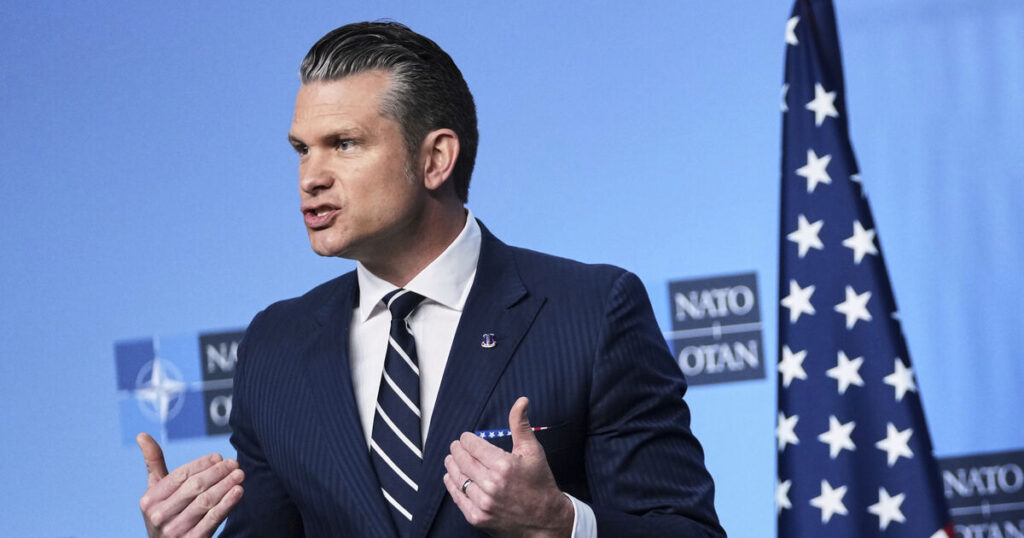The Pentagon watchdog is investigating whether any of Defense Secretary Pete Hegseth’s aides were instructed to delete Signal messages potentially containing sensitive military information shared with a reporter, according to sources familiar with the investigation and documents reviewed by The Associated Press.
The inquiry focuses on the dissemination of information related to the March 15 air strikes on Houthi targets in Yemen via the Signal messaging app.
This development comes as Mr. Hegseth is scheduled to testify before Congress next week for the first time since his confirmation hearing.
He is expected to face questioning under oath regarding his handling of sensitive data, as well as broader issues within the Pentagon stemming from the departures of several senior aides and an internal investigation into information leaks.
Mr. Hegseth has already faced scrutiny over the installation of an unsecured internet line in his office, bypassing Pentagon security protocols, and for sharing details about the military strikes in multiple Signal chats.
One of the chats included his wife and brother, while another involved President Donald Trump’s top national security officials and inadvertently included The Atlantic’s editor-in-chief, Jeffrey Goldberg.
Neither the Pentagon nor the inspector general’s office immediately responded to requests for comment on the investigation on Friday.
In addition to determining whether deletion of Signal messages was requested, the inspector general is also questioning past and current staffers who were with Mr. Hegseth on the day of the strikes to ascertain who posted the information and who had access to his phone, according to the AP’s sources and documents.
Democratic lawmakers and a few Republicans have expressed concern that the information Mr. Hegseth shared on the Signal chats before the military jets reached their targets could have endangered pilots’ lives, an action that would have resulted in the termination of any lower-ranking service member.
Mr. Hegseth has maintained that none of the information was classified. However, multiple current and former military officials have stated that sharing details of that specificity, especially before a strike took place, would not be permissible on an unsecured device.
“I said repeatedly, nobody is texting war plans,” Mr. Hegseth told Fox News Channel in April following reports about the chat involving his family members.
“I look at war plans every day. What was shared over Signal then and now, however you characterise it, was informal, unclassified co-ordinations, for media co-ordinations and other things. That’s what I’ve said from the beginning.”
Mr. Trump has reaffirmed his support for Mr. Hegseth, stating during a Memorial Day speech at Arlington National Cemetery in Virginia that the defense secretary “went through a lot” but “he’s doing really well.”
Since the Signal controversy, Mr. Hegseth has reduced his public engagements with the press. He has not yet held a Pentagon press briefing, and his spokesman has briefed reporters there only once.
Signal is a publicly available app offering encrypted communications, but it is vulnerable to hacking and not authorized for transmitting classified information.
On March 14, the day before the strikes against the Houthis, the Defense Department cautioned personnel about the app’s vulnerabilities.


